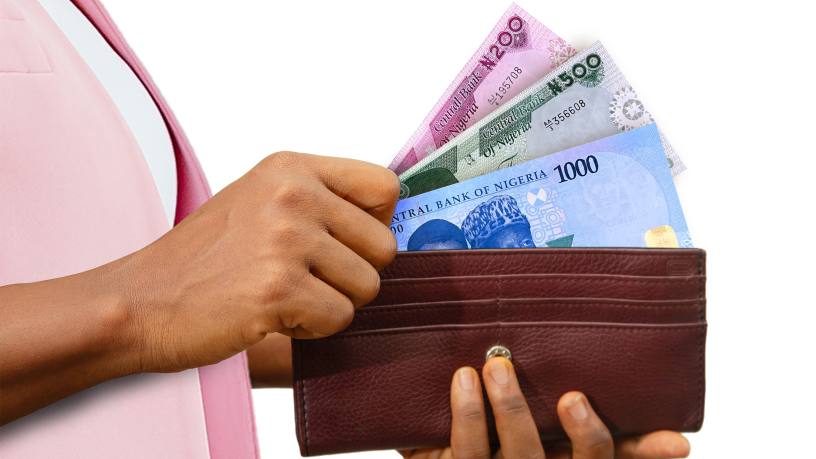The recent announcement by Nigeria’s central bank of the redesign of the national currency, the naira, has sparked a heated dispute in the country. On November 26, the central bank unveiled new N200 ($0.44), N500 and N1000 bills, and introduced a policy limiting weekly individual and corporate withdrawals to N100,000 and N500,000, respectively.
At the centre of the controversy is the head of the Central Bank of Nigeria (CBN), Godwin Emefiele, who has continued to defend the policy as in the best interests of the country’s economy, the largest in Africa.
Mr Emefiele and the CBN have stated the redesign will, among other things, combat inflation, help draw hoarded cash back into the formal economy, as well as combat terrorism, fraud and money laundering.
However, opposition is mounting against the policy from different high-level quarters, especially politicians who fear anything that can directly or indirectly stand in the way of their plans for the forthcoming elections in late February. In the mix of opposition, politicians from the ruling party – the All Progressives Congress – have been the most vocal.
In addition to the CBN’s assertions that the redesign will curb inflation and reduce the hoarding and counterfeiting of naira notes, the central bank also stated that it would hasten the attainment of a cashless economy and improve security by reducing kidnapping and terrorism by disrupting ransom payments.
According to data released by the CBN, 85% (2.73 trillion) of the approximately 3.23 trillion notes issued were circulating outside the banking system as of September 2022.
The World Bank applauded the CBN’s naira redesign policy, but warned a rapid implementation could negatively impact the poor. The CBN pledged to shield vulnerable Nigerians from any negative implications that may arise from the policy.
Implications for Nigeria’s forthcoming elections
The deadline for the use of old naira notes, which has been fixed for January 31, has unsettled the political elite. Once this date has passed, old notes will cease to be legal tender and will no longer be of use to those who have stockpiled them.
Alluding to this policy outcome, the chairman of the Economic and Financial Crimes Commission, Adulrasheed Bawa, insisted that the naira redesign will curb corruption by targeting looted funds.
There are strong indications that politicians may have systematically stockpiled cash in preparation for the elections, and this policy could disrupt plans to use cash to influence voters through vote buying.
The complex dimensions of the unfolding drama have been interpreted as a desperate effort by high-ranking politicians to ensure they frustrate the policy and guarantee their rigging plan.
Mounting opposition in spite of presidential approval
President Muhammadu Buhari confirmed that he approved the naira redesign policy and personally unveiled the new denominations, reaffirming that the new notes have been fortified with features that will prevent counterfeiting.
In October 2022, the Nigerian Senate resolved to provide legislative support to the redesign policy. However, as soon as the deadline was announced, the House of Representatives immediately summoned the CBN governor, demanding that the policy be suspended. The speaker of the House, Femi Gbajabiamila, reportedly held a closed-door meeting with Mr Buhari on the issue.
The Miyetti Allah Cattle Breeders Association, many of whose members live in forests and the bush, and who are representative of the large number of people who will struggle to cope with the fast-looming deadline, joined the call to extend it. The Senate too asked for an extension of the deadline until after the elections.
A former governor of Sokoto State, now serving as a senator, described the redesign policy as unnecessary, thoughtless and controversial, insisting that it will plunge the people from northern Nigeria into more profound misery. The minister of finance, budget and planning, Zainab Ahmed, decried the policy, insisting that neither she nor her ministry were consulted.
Did the withdrawal restrictions target northern Nigeria?
One of the factors fuelling the resistance against the other arm of the CBN’s policy, the restrictions on cash withdrawals, is the perception that the policy is targeting the northern part of the country from which the president hails, a region which is disproportionately unbanked and reliant on cash.
The Arewa Consultative Forum joined the opposition against the policy, insisting that many northerners who operate within the informal sector will be affected by the cash restriction policy. A coalition of northern groups vowed to take punitive action against the CBN.
This perception is largely false, however, as many of these groups appear to be sponsored proxies who are prosecuting a well-rehearsed political agenda. Unsurprisingly, some groups have started calling for Mr Emefiele to be sacked by issuing Mr Buhari a seven-day ultimatum. Other groups have conversely urged the president to ignore the call, insisting that it lacks merit.
Impact on terrorism
Sources from the CBN believe that making the old currency obsolete could render large amounts of cash held in forest hideouts useless and possibly lead to the decapitation of funding sources for terrorism.
This could improve security in the country’s north-eastern and north-western regions, though cleric Sheikh Gumi, based in the former northern capital of Kaduna, suggested that redesigning the naira may simply force terrorists to start collecting ransoms in US dollars.
There are indications that the policy might have already thrown terrorists from the Islamic State of West Africa Province into confusion as they have already started rejecting naira notes and have instead begun to demand payment in CFA francs.
Free and fair elections
Mr Buhari is reportedly under pressure from politicians and vested interests to arrest the CBN governor on trumped-up charges in order to halt the policy, though stakeholders insist that such action could have multiple negative implications on the economy.
However, the president has repeatedly proclaimed locally and internationally that he plans to leave a legacy of free and fair elections. His ignoring of calls to reverse the policy is seen by many as a clear demonstration of his insistence to keep to this promise.
Recently, the president warned security agencies to desist from jeopardising the 2023 polls, for the second time in a month. Even critics of Mr Buhari and Mr Emefiele are inspired by the potential of this policy in making Nigeria’s elections this year both freer and fairer.

Uche Igwe, PhD, is a senior political economy analyst and visiting fellow at Firoz Lalji Institute for Africa and the London School of Economics and Political Science.












